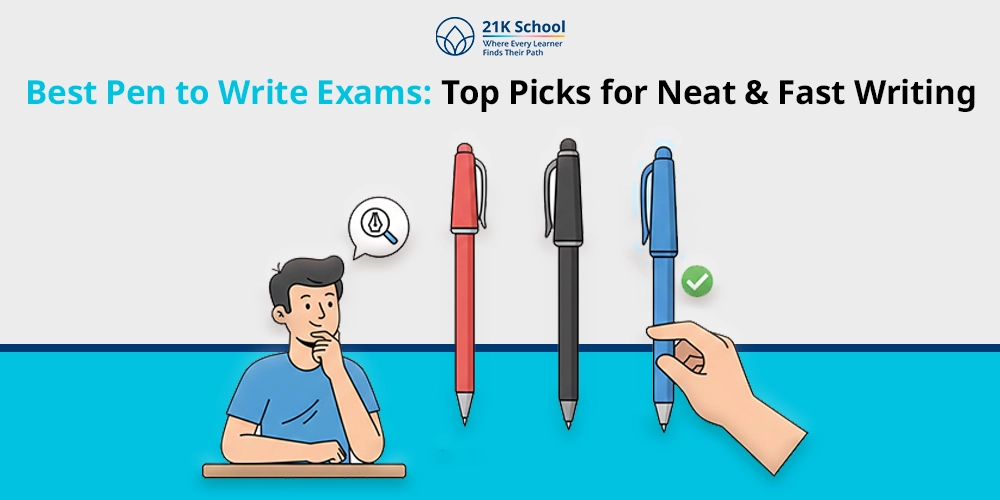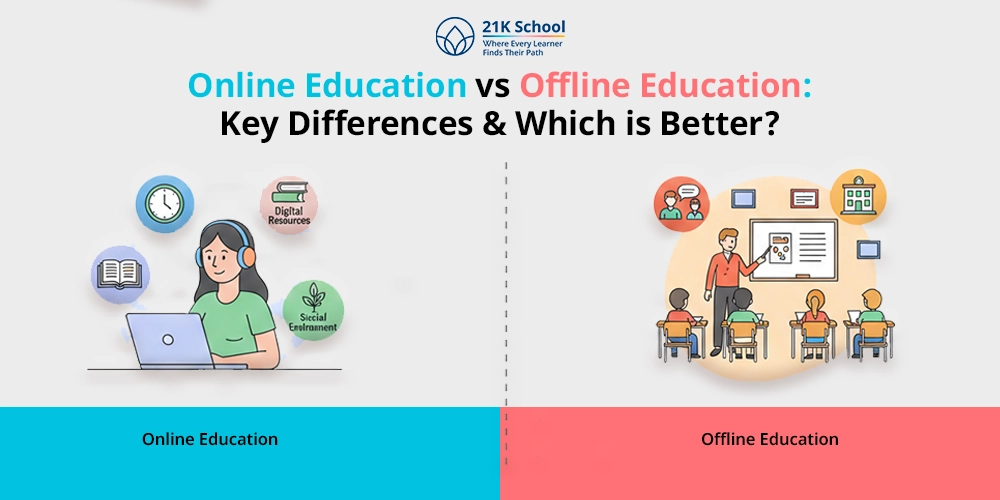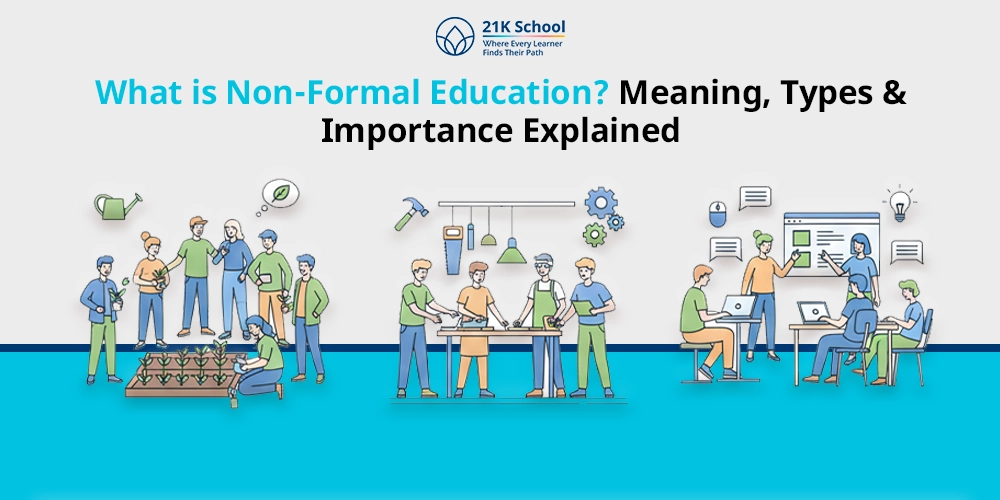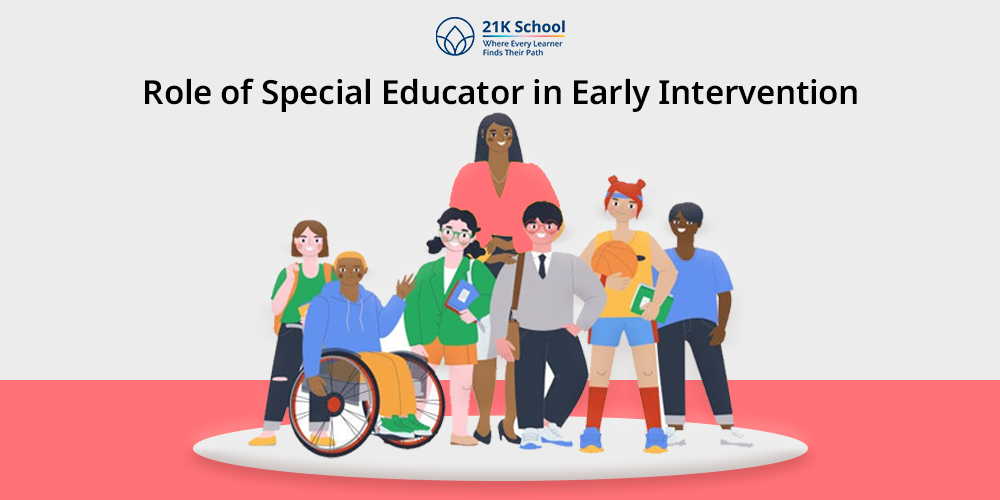
Have you ever thought about how special educators help children with early intervention?
Special educators provide students with early intervention support and guidance in order to enhance their potential. Understanding early through intervention, including special education , helps in identifying the behaviours and lack of developmental skills among children.
During early childhood, children go through various developmental stages, and it is essential for parents and teachers to understand the process. From birth to age five, children are said to be the most active.
Parents must be aware of their childs developmental stages in conjunction with the paediatrician.
The child may have developed conditions or be suspected of having delayed development in social communication, expressive and receptive language, cognitive development, neurobehavioral or social-emotional learning .
If any behaviour is suspect, it is essential for parents to start early intervention, which will help in assisting the children to learn new skills and have control over their behaviours or disorders.
Contents
What is Early Intervention?
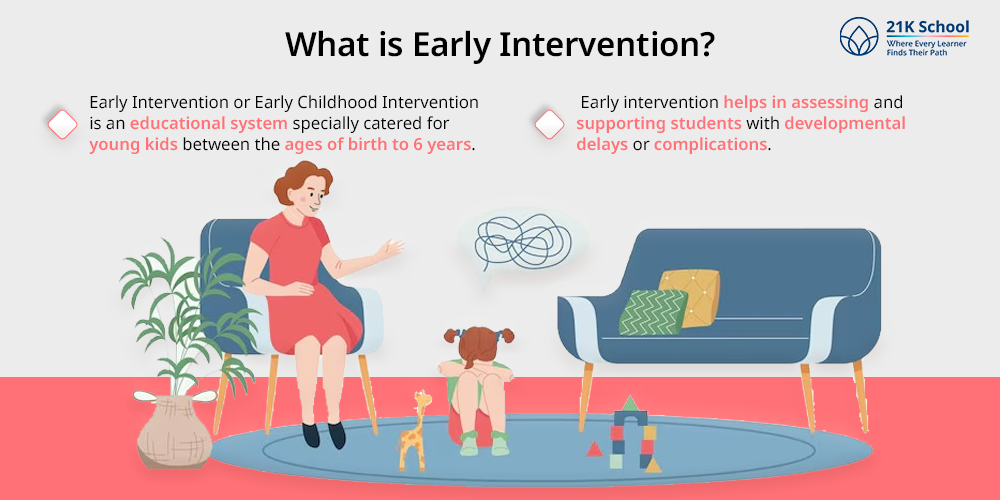
Early Intervention or Early Childhood Intervention is an educational system specially catered for young kids between the ages of birth to 6 years. Early intervention helps in assessing and supporting students with developmental delays or complications.
A special educator will provide early intervention services to students with challenges, which include speech therapy, occupational therapy, and other related therapies.
Some children develop developmental disabilities which hamper their learning capabilities, communication skills , or may act slower as compared than others.
Early intervention helps in diagnosing the problem and providing proper care and therapy sessions to children with learning difficulties .
What are the Roles Played by a Special Educator in Early Intervention?
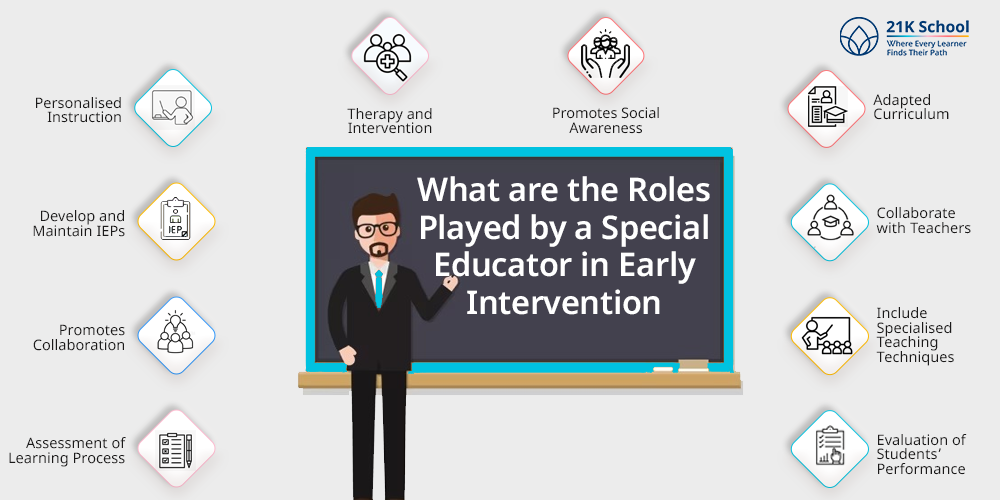
Special educators and early intervention are essential in helping young children with disabilities or developmental delays. Finding needs and creating Individualised Education Plans (IEPs) are their main priorities.
Special educators help in promoting an inclusive learning environment as well as encourage students to actively indulge in the teaching and learning process. Below are the roles played by special educators in early intervention.
1. Personalised Instruction
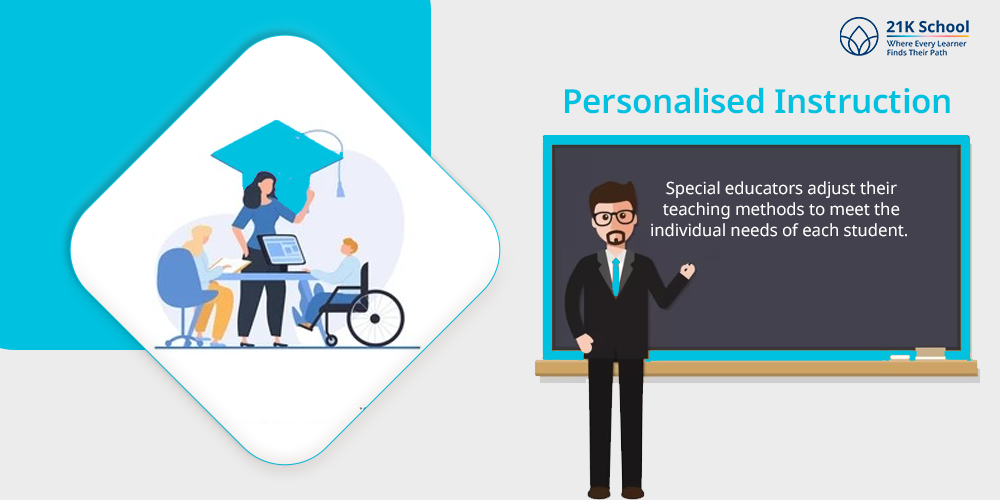
One of the major roles played by special educators is to provide students with personalised education . Special educators adjust their teaching methods to meet the individual needs of each student.
This customised approach allows students to learn and engage the educational aspect as per their own learning style and abilities. By focusing on each child’s unique interests and strengths, special educators can establish a more positive learning environment .
2. Develop and Maintain IEPs
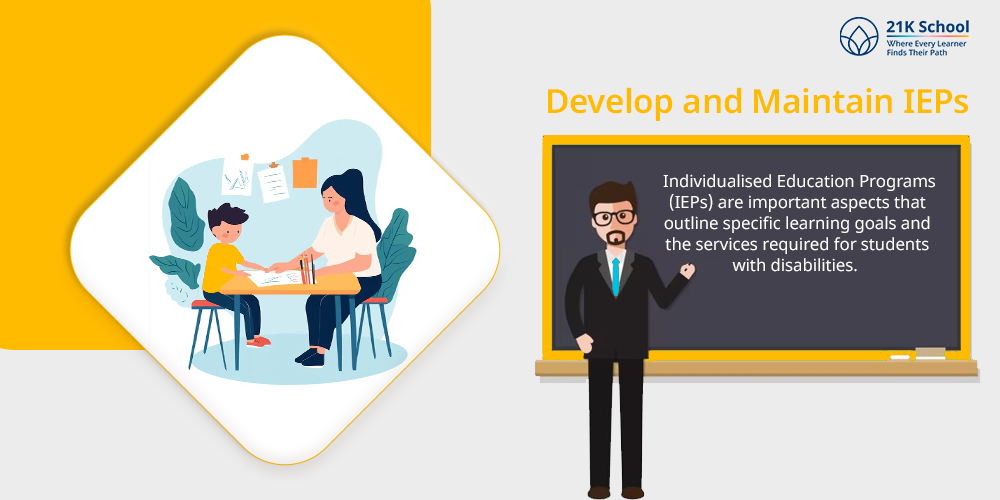
Another major role played by special educators for intervention programs is to develop and maintain IEPs. Individualised Education Programs (IEPs) are important aspects that outline specific learning goals and the services required for students with disabilities.
These plans are developed and maintained by special educators and focus on collaboration with parents, teachers and healthcare experts.
3. Promotes Collaboration
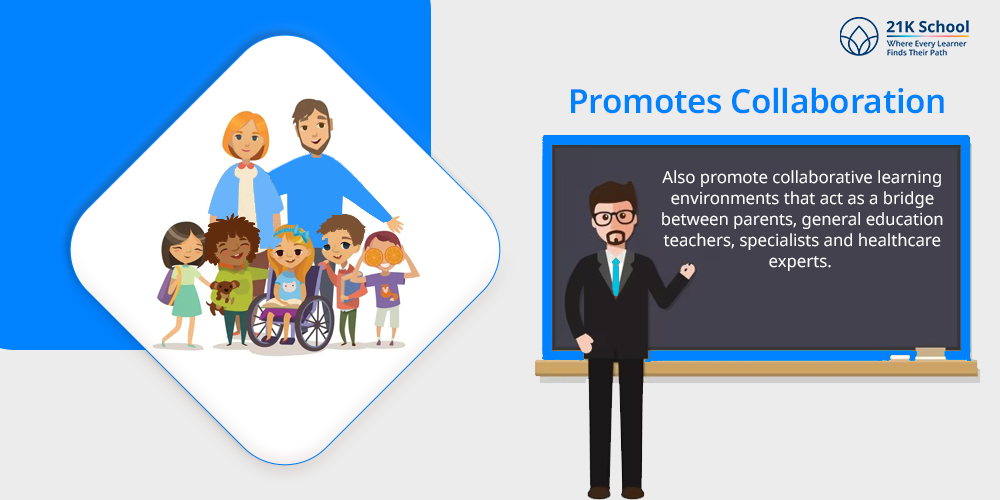
Special educators also promote collaborative learning environments that act as a bridge between parents, general education teachers, specialists and healthcare experts.
By promoting open communication and collaboration, they ensure that all individuals in the child’s education share the same goals and strategies, creating a cohesive support system that enhances the child’s learning experiences and promotes social-emotional learning.
4. Assessment of Learning Process
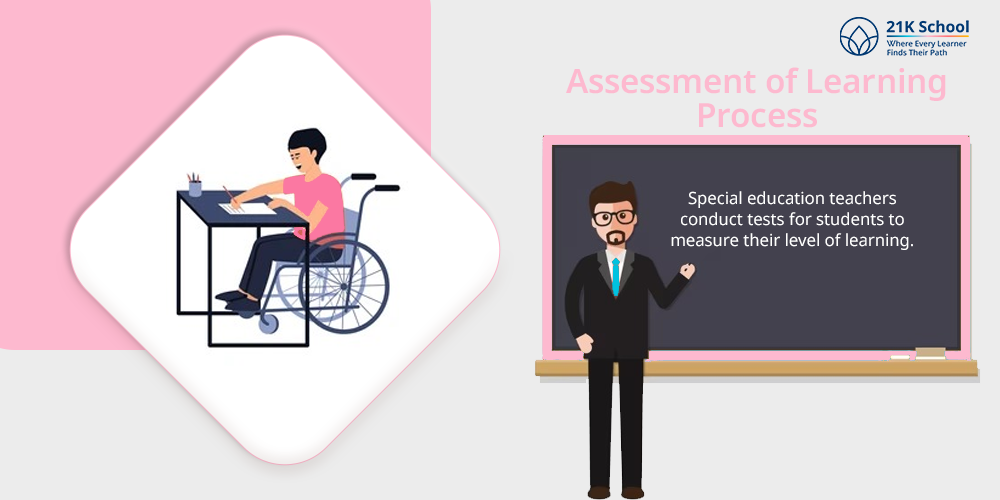
Special educators also assess the students’ performance. Special education teachers conduct tests for students to measure their level of learning. This includes identifying students’ learning style, weaknesses and strengths.
Utilising a range of assessment methods and resources, they can gather valuable data that informs instructional decisions and facilitates the customisation of interventions to meet each student’s developmental needs.
5. Adapted Curriculum
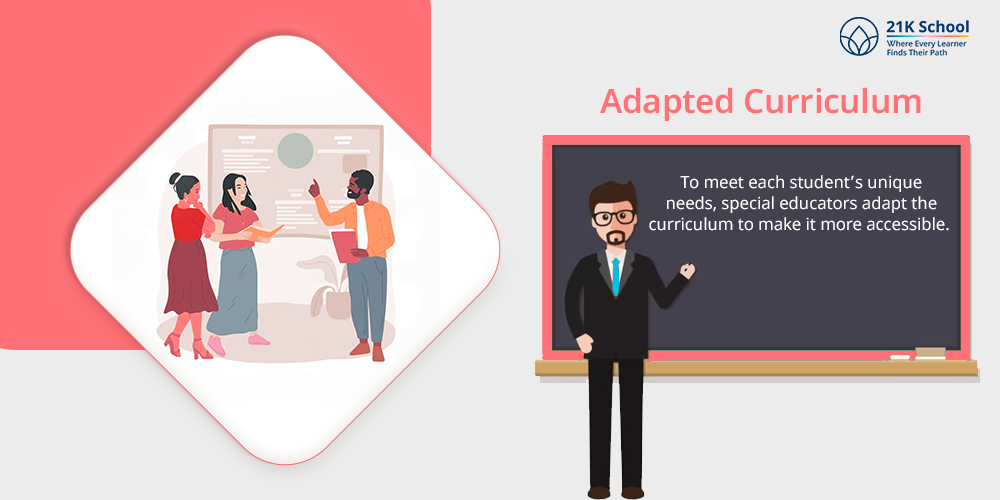
Special educators also help in adapting the curriculum to the needs of the students. To meet each student’s unique needs, special educators adapt the curriculum to make it more accessible.
This includes providing alternative materials, modifying instructional techniques or changing the subject matter. The main goal of this is to enable every student to engage meaningful content with the curriculum in spite of their individual challenges.
6. Collaborate with Teachers
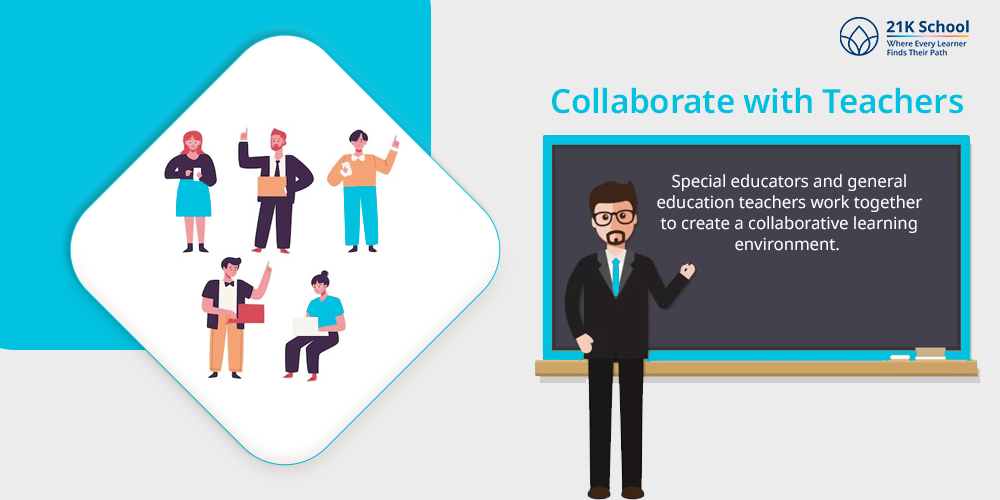
Special educators and general education teachers work together to create a collaborative learning environment. The collaboration skills involve co-planning lessons, developing strategies for instruction, differentiation and exchanging thoughts or ideas regarding the needs of students.
This method also helps in promoting peer-to-peer education . Through this, they can ensure that all students receive the support they need to succeed academically and socially by working together.
7. Include Specialised Teaching Techniques
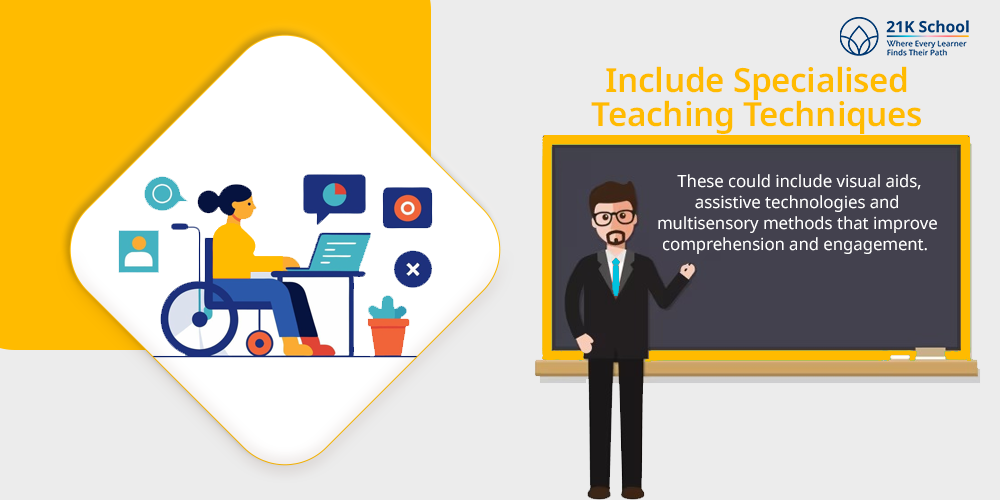
To meet the individual learning needs of each student, special educators use a range of specialised teaching methods. These could include visual aids, assistive technologies and multisensory methods that improve comprehension and engagement.
Special educators can assist students in overcoming obstacles to learn and achieving their learning objectives by employing these strategies.
8. Evaluation of Students’ Performance
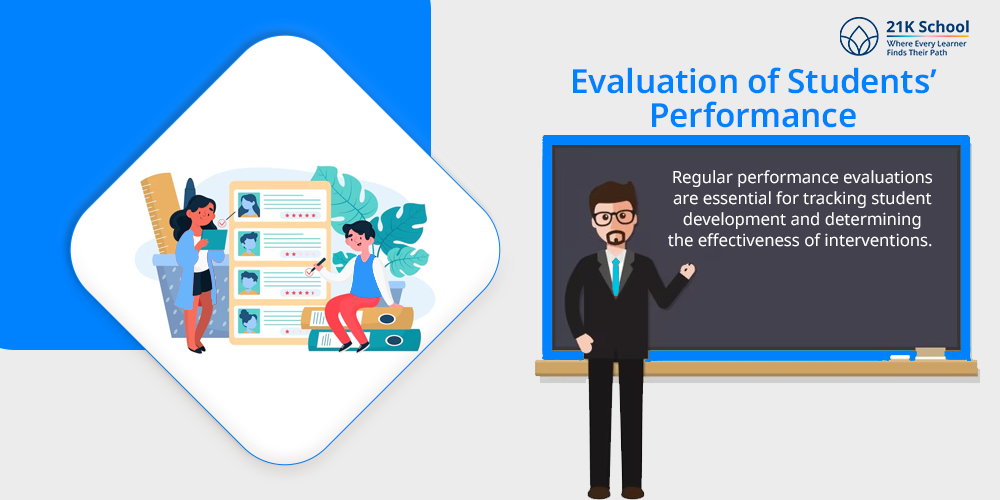
Regular performance evaluations are essential for tracking student development and determining the effectiveness of interventions.
Using both summative and formative assessment methods, special educators can assess students’ social and academic development. They can use this ongoing assessment to determine what changes are required to support and instruct.
9. Therapy and Intervention
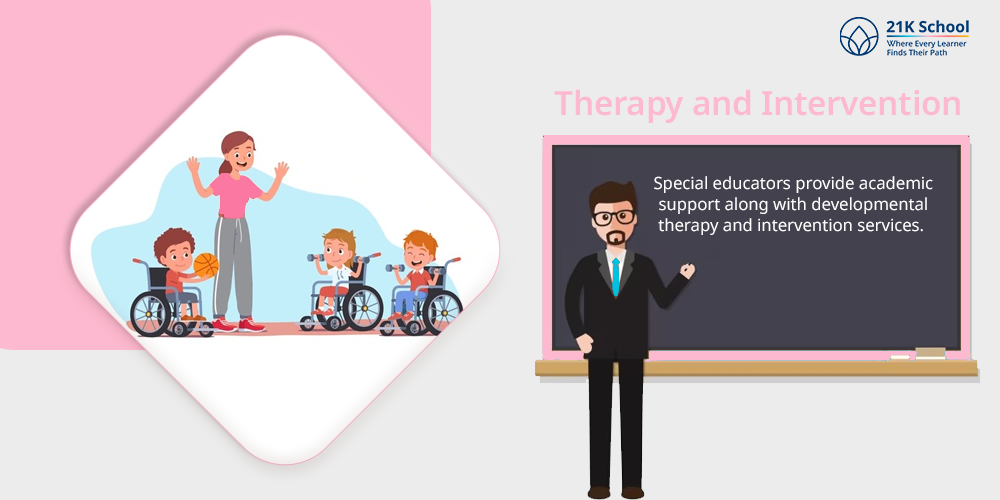
Special educators provide academic support along with developmental therapy and intervention services. This may include occupational therapy, speech therapy or behavioural interventions.
By concentrating on these areas, special educators help students develop critical thinking skills that support their overall success in school and future preparations, as well as enhance student’s engagement .
10. Promotes Social Awareness
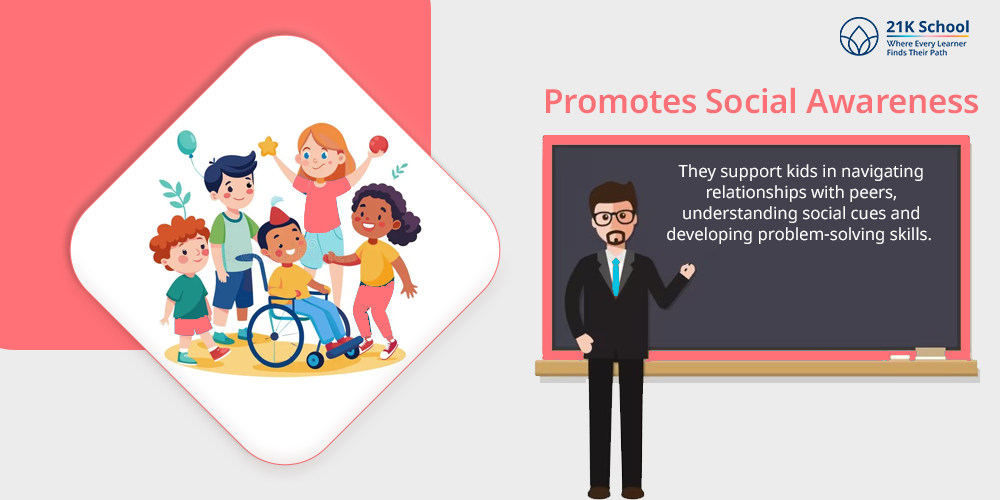
Students’ social awareness is greatly enhanced by special educators. They support kids in navigating relationships with peers, understanding social cues and developing problem-solving skills .
Special educators help create a welcoming classroom atmosphere where all students feel appreciated by encouraging social awareness, which also reduces racial problems in schools .
Final Note
Special educators are essential to early intervention because they help children with developmental delays or disabilities learn and grow.
Special educators provide individualised instruction, develop and implement IEPs and promote collaboration between families and professionals in order to create a welcoming and encouraging environment.
They are skilled at assessing learning processes, adjusting curricula, and employing specialised teaching techniques to provide each child with the tailored support they need to thrive.
Additionally, through evaluating student performance and implementing therapeutic interventions, special educators enhance academic outcomes while cultivating social awareness and interpersonal skills.
Because of their commitment to early intervention, children are ultimately able to reach their full potential and build a strong foundation for future success.

